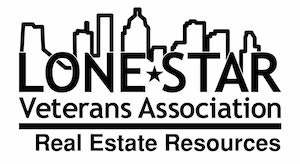Lofts are in vogue in urban areas because of their generous space, unbeatable amenities, and prime locations. If you’re thinking about renting a loft or would like to buy one, here’s some factors you should think about before signing that lease or making an offer.
Utilities
Lofts typically entail huge spaces, high ceilings, and sometimes are built within older structures with exposed building materials like brick. Get an idea of the average energy bills so you’ll know if the loft fits your monthly budget. You should also find out which utilities are and aren’t included in your rent or common charges.
On-site Amenities
What kind of perks are you looking for in loft living and your particular needs? More on-site amenities means a higher rent or purchase price, but you have your pick of everything from a doorman, valet pet care, pools and fitness centers.
Location
Lofts are usually converted from industrial property. Traditionally, formerly industrial areas in cities have been a lot farther away from public transit than strictly residential developments so that the businesses wouldn’t disturb the peace or hog very narrow streets with trucks and loud equipment. If the loft is in a remote area and you don’t drive, location could be an issue.

Surroundings
When looking into buying or renting a loft, check out the immediate surroundings of the building. A spectacular view is great for your property value as is proximity to a community garden.
Soft Lofts vs. Hard Lofts
Soft lofts are “fake” lofts in that they were designed to be lived in from the get-go but they just resemble hard lofts in layout and appearance, so buying a loft is likely to be more expensive if you go with this option because they’re also likely to be newer construction.
Hard lofts are “real” lofts because they are commercial buildings that got converted to residential use. They typically have high ceilings, exposed building materials like brick, large windows, and older structures; Hard lofts usually provide better storage and illumination solutions, due that those are ideal for business/office;
Storage
Loft living is usually spacious, but the layout may not be efficient depending on what type of building the loft used to be and what your plans are for the space. Make sure there’s room for all of your belongings and that home office you always dreamed of.
Location Within the Property
Depending on layout and availability, you want the best part of the building. Corner lofts are the quietest, while a ground floor loft is great if you hate stairs, and lofts on the top floor have the best views.
Neighbors
Who’s living next door or above/below you? If you’re buying a loft, you definitely want to take a good look at who your neighbors are. If you’re looking for art space or a spacious home office, living around other artists would be ideal and party animals need to stick with other party animals.

